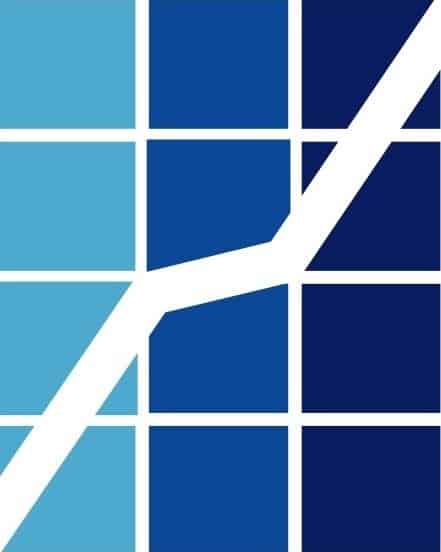Best Time to Apply For Credit Cards: Most Benefits
Applying for credit cards can be tricky as you may not know if you are approved or missing out on additional benefits.
After reviewing multiple kinds of credit cards, we’ll cover the best time to apply for credit cards to get you the maximum bonus and a higher chance of being approved.
Table of Contents
Best Time to Apply For Credit Cards
Best Times to Apply
During Promotional Periods
Now, let’s talk about one of the most advantageous times to apply for a credit card – during promotional periods. These are specific times within the year when credit card companies offer enticing deals, bonuses, and lower interest rates to attract new customers.
These periods often coincide with popular shopping seasons or holidays like Black Friday, Cyber Monday, and Christmas. During these promotions, you might find offers for zero percent interest rates for an introductory period or significant reward points for signing up.
Applying during a promotional period is not only beneficial because of the lucrative offers but also due to the potential savings in interest fees. For instance, if you plan on making a large purchase that you can’t pay off immediately, a credit card with an introductory offer of zero percent APR (Annual Percentage Rate) allows you time to pay off that balance without accruing interest.
However, it’s vital to avoid getting too swept up in the charm of these promotions. Always read the fine print and ensure that after the promotional period ends, you won’t be stuck with an exorbitant interest rate or hidden fees.
Also, consider whether the rewards program suits your spending habits; there’s no point in accruing airline miles if you rarely travel! Remember: The timing here is crucial – keep tabs on when these promotional periods occur and strategically apply once they do to maximize these benefits.
When Your Credit Score Peaks
A higher score indicates to lenders that you’re adept at managing your finances and are more likely to meet your obligations orderly.
Often, responsible financial behaviors such as timely bill payments, maintaining low debt balances, and limiting new credit inquiries will gradually augment your score over time. If you’ve been diligently practicing these prudent measures for several months or even years without applying for new lines of credit, then it’s likely that you’re near or at your peak.
However, remember that each individual’s financial circumstances and history are unique; thus, the precise line of when someone “peaks” may fluctuate between individuals. Nonetheless, consistent monitoring can provide valuable insight into where you stand on the spectrum.
There are numerous resources available online that offer periodic updates on your estimated score – using such services can help keep track of upward trends. Try timing your application shortly after a reporting period ends – as this would encapsulate all recent positive changes on file before lenders pull up the information during their evaluation process.
Although acquiring a new card isn’t entirely dictated by having an impeccable score since other factors also come into play, being aware of when your peaks could significantly enhance the odds in your favor!
Post-Major Financial Changes
So, you’ve weathered a significant financial shift, be it a job transition, move, or even something more dramatic. It’s essential to understand that such changes can affect your credit card application process.
When you’ve recently experienced a considerable financial change, it could be an opportunity to apply for a new credit card. For instance, if you ascended the career ladder and now earn a higher salary, this might bolster your chances of approval. Card issuers often look at income with your debt – known as your debt-to-income ratio – when assessing your eligibility. A spike in earnings can significantly adjust this ratio in your favor.
Also, major life-changing events are taken into account too. Changes in marital status may influence the household income figure used on credit card applications – potentially swinging decision-making odds in favor of approval depending on circumstances.
However, timing isn’t everything; regardless of what stage of life you’re navigating through, it’s important to stay sensible about taking on new lines of credit and avoid overextending yourself financially.
Factors Influencing Credit Card Application
Credit Score Fluctuations
Your credit score is a crucial player in the credit card application process. What many people may need to comprehend is that our credit scores are not stagnant; they fluctuate, often as frequently as every month.
This fluctuation can be affected by your payment history, current debt, the length of your credit history, the mix of credits you have, and new credit applications.
Let’s say you’ve been diligently paying off your debts and keeping a low balance on your existing cards for months – this could lead to an increase in your score. On the other hand, if you’ve missed payments or applied for multiple loans or cards at the same time – it might cause a drop in your score.
Understanding these fluctuations can help determine a practical time to apply for a new card. If you’re aware of an upcoming report of positive information – like clearing off a large chunk of debt or an old adverse event dropping off from your report – it might be worth waiting till then before making an application.
Alternatively, if you’ve recently had some financial hiccups resulting in adverse effects on your score, holding off on applying until it recovers could increase chances of approval and better terms. It’s all about timing for these fluctuating figures that can either boost or hamper your chances significantly.
Seasonal Promotions
When it comes to credit card applications, timing can be everything. Let’s talk about seasonal promotions. Credit card companies, similar to other businesses, often run promotions during particular seasons or holidays.
These could include cash-back offers, increased reward points, low introductory APR rates, or waived fees for a year or more. The holiday season, especially towards the end of the year, is a standard time for such promotions – in line with increased consumer spending.
It’s also worth noting that these lucrative deals are not limited to holidays alone. Sometimes, they coincide with specific events like Tax Day in April, where many people receive tax refunds and might consider using them to pay off credit card balances.
Similarly, Black Friday and Cyber Monday are popular times for credit card companies to offer deals since they coincide with high spending. But remember, don’t let enticing offers cloud your judgment and lead you into applying impulsively without considering your financial viability or need for a new credit card.
While seasonal promotions can indeed provide an excellent opportunity to maximize the benefits of your new credit card, it’s essential to adopt a strategic approach when applying. Keep an eye out throughout the year as these special promotions pop up periodically and could present a fantastic opportunity for potential applicants who time their applications just right!
Personal Financial Situation
One crucial element to consider when considering the prime time to apply for a credit card is your financial situation. You see, it’s not just about catching the lenders at their most generous or when your credit score is soaring—it’s also about how steady you are standing with your finances.
Consider this: you could have a solid credit score, and there might be an enticing promotional offer on the table, but if you’re currently juggling multiple financial obligations or your income has recently taken a hit, it might not be the best time to apply for another line of credit.
You see, lenders don’t just scrutinize your past behavior—they also consider your current ability to repay any borrowed funds. If you’ve recently lost your job, undergone a costly medical procedure, or incurred any significant expenses that have left you cash-strapped, these circumstances will likely give lenders pause.
Take a moment to assess where you stand financially. Look at your income and expenditure pattern—do you have a regular flow of income that comfortably covers all your bills?
Are there any large expenditures looming around the corner? A realistic evaluation of these variables will determine whether it’s an opportune moment to submit that application.
Times to Avoid Applying
After a Major Purchase
Let’s talk about a common misstep people tend to make – applying for a credit card right after making a significant purchase. Now, it may seem logical.
You’ve exhausted your savings on, say, a new car or a lavish vacation, and having some extra credit might come in handy to tide you over until your finances bounce back. But when this is one of the worst times to apply.
You see, any significant expenditure can change your credit utilization ratio – the percentage of your available credit you’re using at any given time. The higher this ratio is, the more it could negatively affect your credit score.
And if lenders see an inflated ratio when they go through your application, they tend not to like that very much because it makes you seem more of a risk. Following up a significant expense with an application for new lines of credit will only do something good for you regarding approval odds; quite the contrary.
When Carrying High Debt
Applying for a credit card is a tempting solution when you’re under the crushing burden of significant debt. It would solve all your immediate problems, wouldn’t it? Well, not exactly.
It’s important to understand that financial institutions analyze your debt-to-income ratio during the application process. If you’re carrying high debt—relative to your income—it could be a red flag for potential lenders.
High consumer debt can impact your credit score negatively and make lenders skeptical about your ability to manage more credit efficiently. They may question whether you can keep up with additional payments on top of your existing obligations. They can reject or approve with less favorable terms, like a higher interest rate or lower credit limit.
Moreover, adding more credit to already high debt could dig you deeper into the hole and lead to more severe financial problems. It’s generally advisable to reduce your existing dogged debt before venturing into new financial commitments.
Closing Thoughts
Determining the best time to apply for a credit card is a highly personal decision that depends on your circumstances. Factors such as your current credit score, financial stability, and existing debt level play pivotal roles in timing your application optimally. However, understanding these factors and utilizing promotional periods can significantly increase your chances of success.

